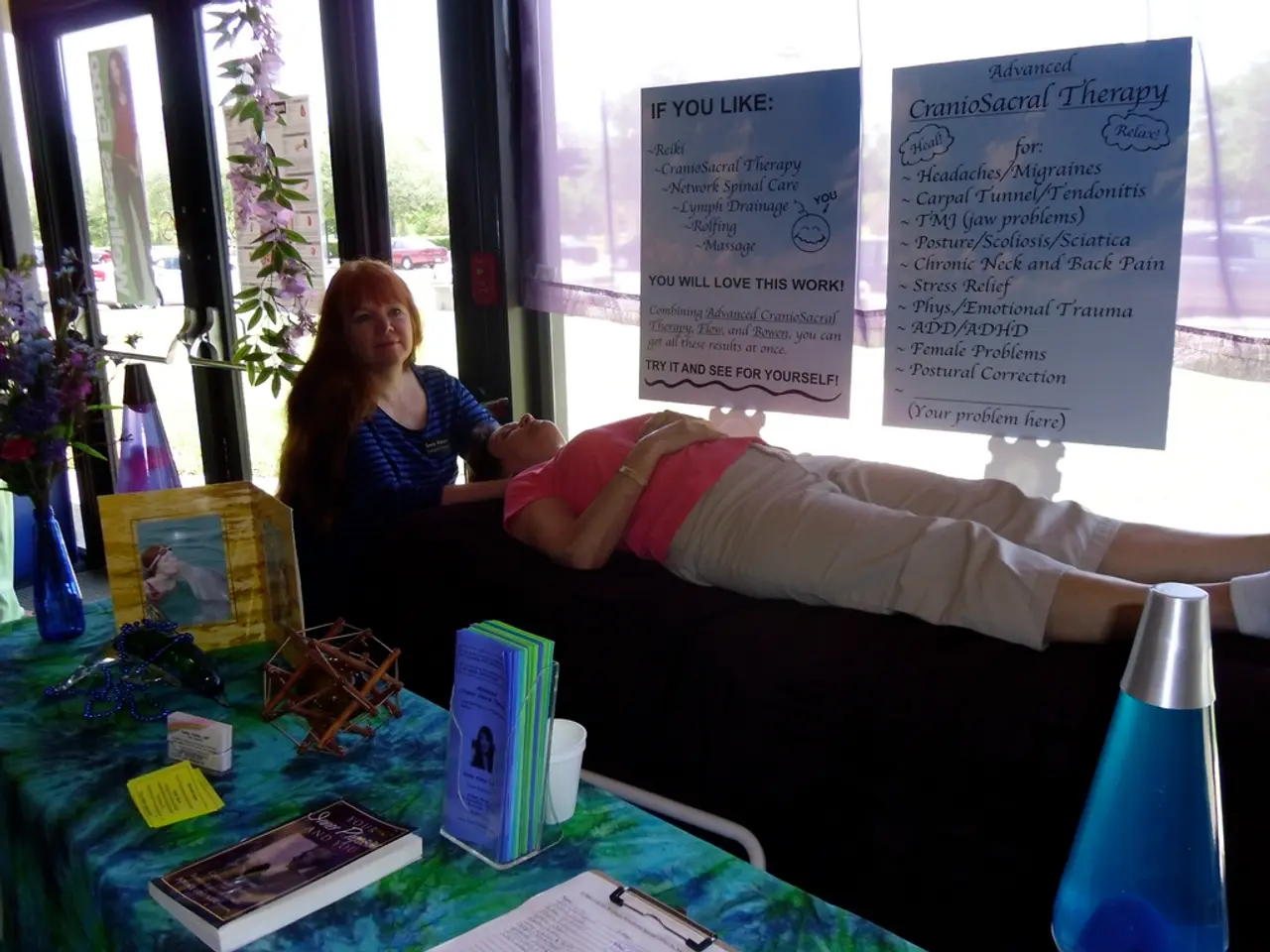Alteration of Brain Structure Due to Trauma Experience
In the face of trauma, it's important to remember that healing is possible. Therapeutic interventions have been shown to be effective in helping individuals heal from the emotional wounds caused by trauma.
Seeking professional help is a significant step towards healing. Mental health professionals offer a safe space where individuals can explore their feelings and develop coping strategies tailored to their specific needs. Therapy can provide a confidential space for individuals to delve into their thoughts and feelings without judgment or shame.
Building a strong support network is crucial for individuals to cope with challenging situations and promote their psychological well-being. Establishing a reliable support network can be achieved by fostering social connections through activities that align with one's values.
Developing coping skills is essential for individuals who have experienced trauma to manage their emotions and reactions in a healthy way. Coping mechanisms can range from mindfulness practices like meditation and deep breathing to more physical activities like yoga or exercise.
Trauma experienced during childhood can have long-lasting effects on the brain's development, leading to difficulties with emotion regulation, memory recall, and attention. However, the brain's remarkable ability to adapt and rewire itself over time, even after experiencing trauma, offers hope for healing.
Neuroplasticity plays a crucial role in healing individuals who have experienced trauma by enabling the brain to reorganize and form new neural connections that help recover from the damage trauma causes. Through neuroplasticity, the brain can rewire itself: new, healthier neural pathways form with repeated experiences of safety, stability, and positive emotional regulation.
This rewiring calms the overactive amygala, restores hippocampal function, and reactivates the prefrontal cortex, thereby reversing trauma-induced changes and supporting recovery. In practical terms, healing involves consistent exposure to safe environments, supportive routines, and practices that encourage new neural patterns.
Recovery from trauma is a journey that is worth taking to achieve a sense of peace and well-being. With the right combination of therapeutic techniques and support, individuals can learn to manage their symptoms and move forward with their lives.
Healing from trauma also increases resilience, enhances self-esteem, provides a sense of direction, and fosters social connections. Cultivating self-awareness is an essential step in building such a network. It involves being mindful of one's emotional state, recognizing personal triggers, and understanding how past experiences may affect current behavior.
Lastly, it's important to remember that seeking help is not a sign of weakness but an act of strength. With the right resources and support, individuals can rebuild their neural networks and regain control over their lives, demonstrating that the nervous system can "reset" itself over time without being permanently damaged.
Healing from trauma is a significant step towards mental health improvement, offering a promising journey of peace and well-being. This process employs various therapeutic interventions that provide a safe space for individuals to explore feelings, develop coping strategies, and engage in self-awareness exercises. Building a reliable support network through social connections can further promote emotional regulation and resilience.
Trauma can disrupt the brain's development, yet its neuroplasticity enables it to rewire itself and adapt, ultimately fostering healing. This rewiring entails forming new neural connections by exposing individuals to safe environments, fostering healthy routines, and engaging in practices like meditation and yoga.
Cultivating self-awareness is essential in this journey, as it helps individuals recognize personal triggers and understand how past experiences may affect their behavior. This enhanced self-awareness can lead to an increase in resilience, self-esteem, direction, and social connections.
It's crucial to remember that seeking help is an act of strength rather than weakness. By rebuilding neural networks and regaining control over their lives, individuals demonstrate that their nervous systems can "reset" themselves over time without irreversible damage. The realm of science, health-and-wellness, and mental-health continually supports this transformative healing journey.




